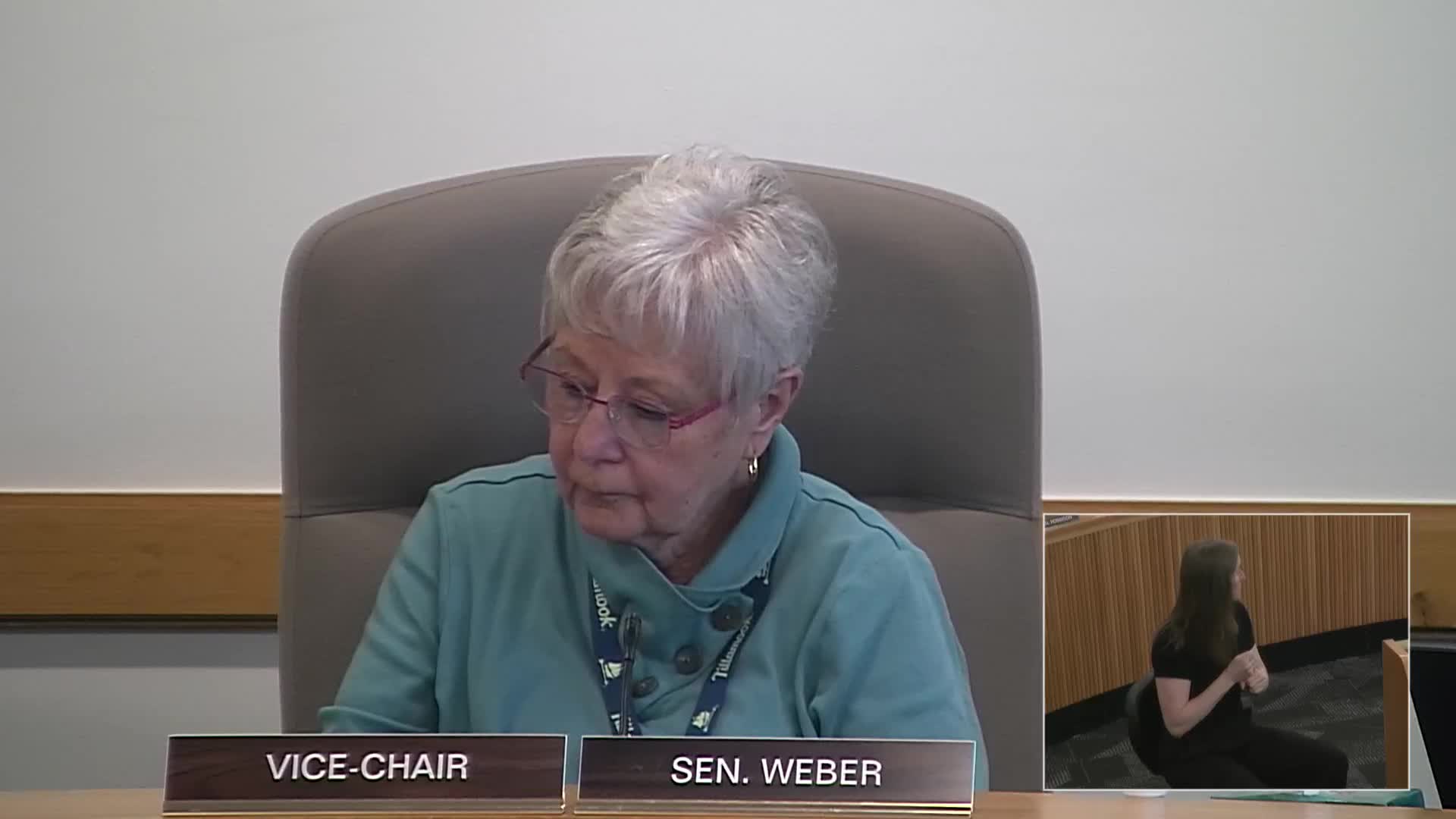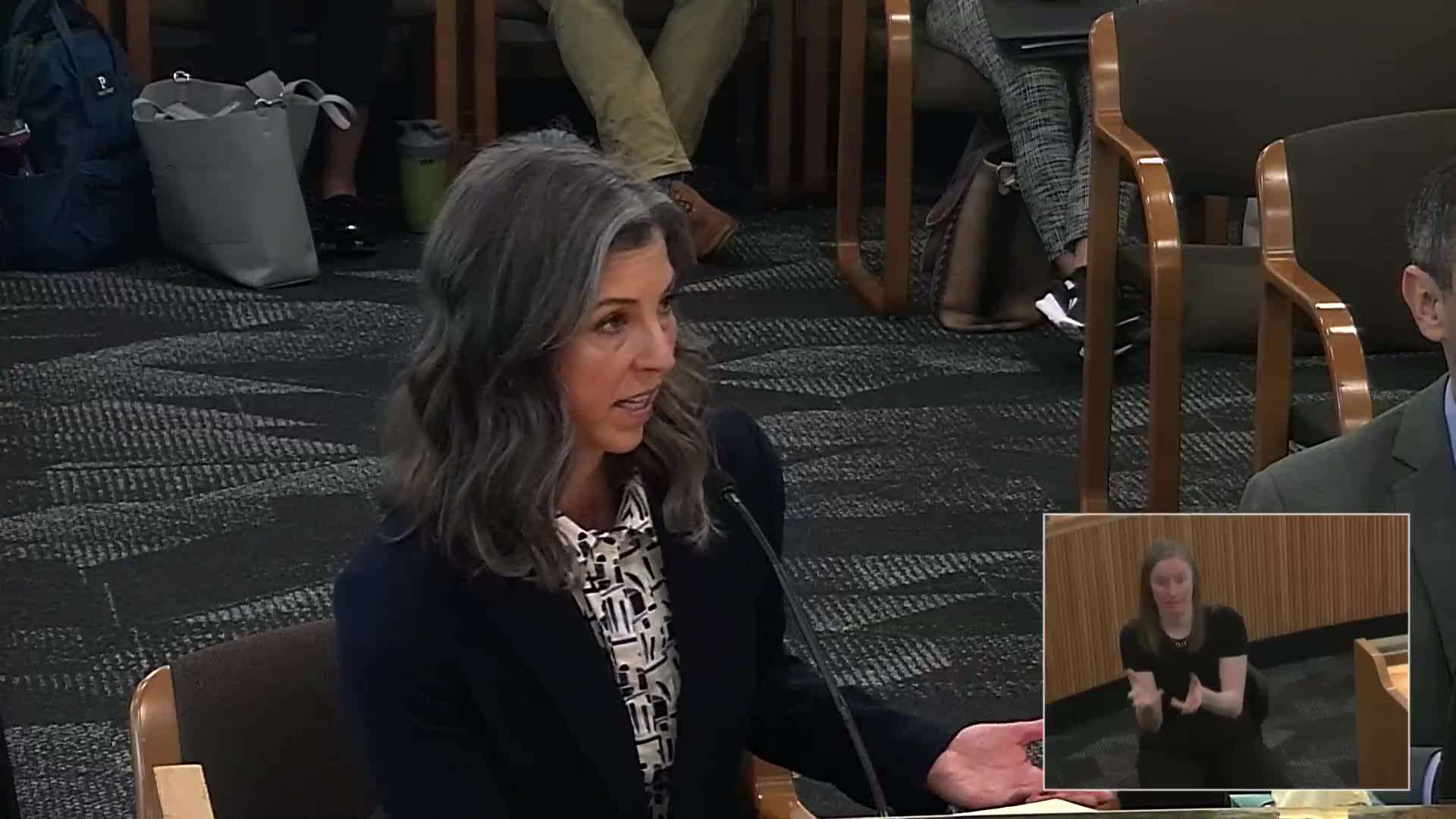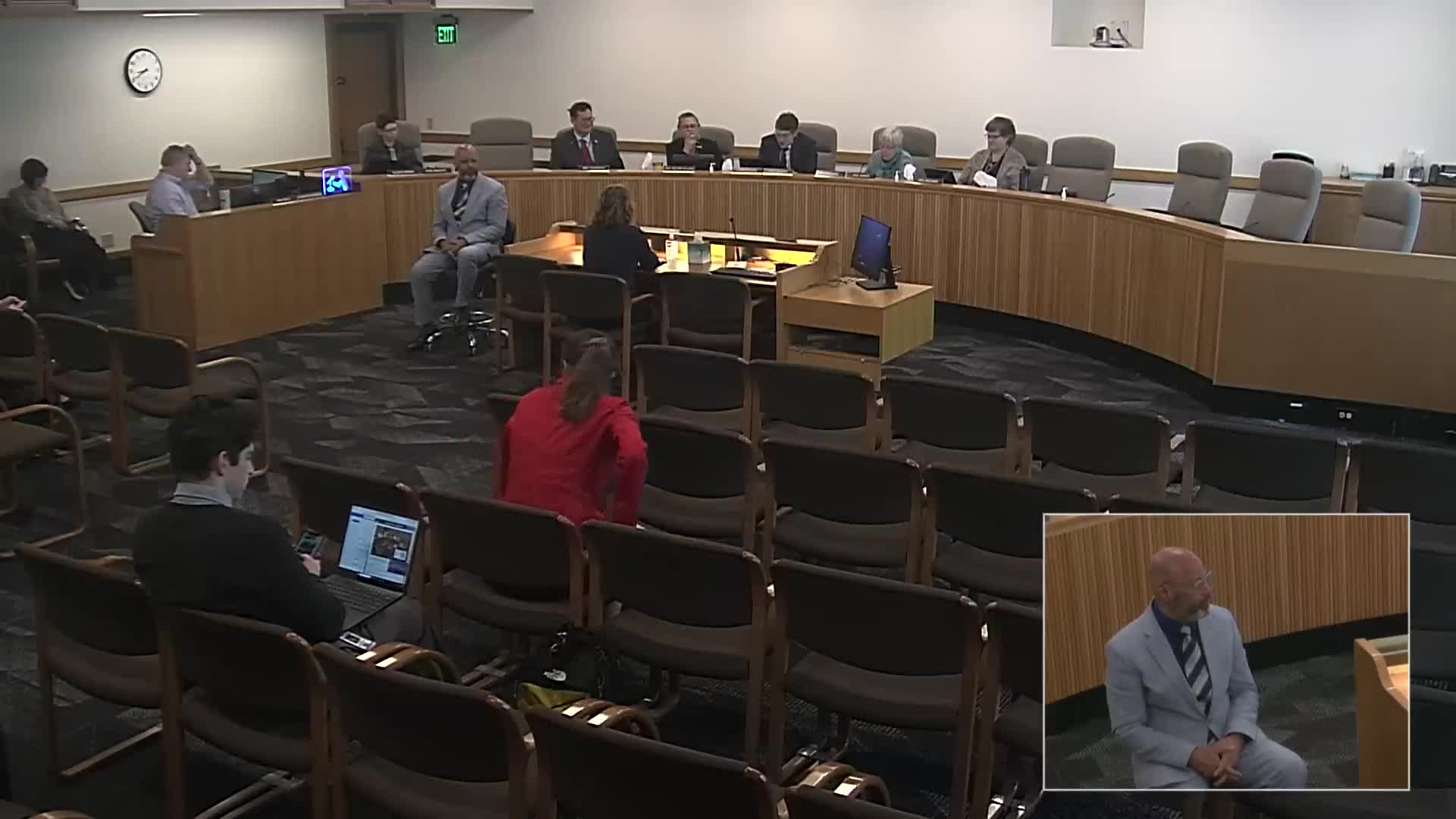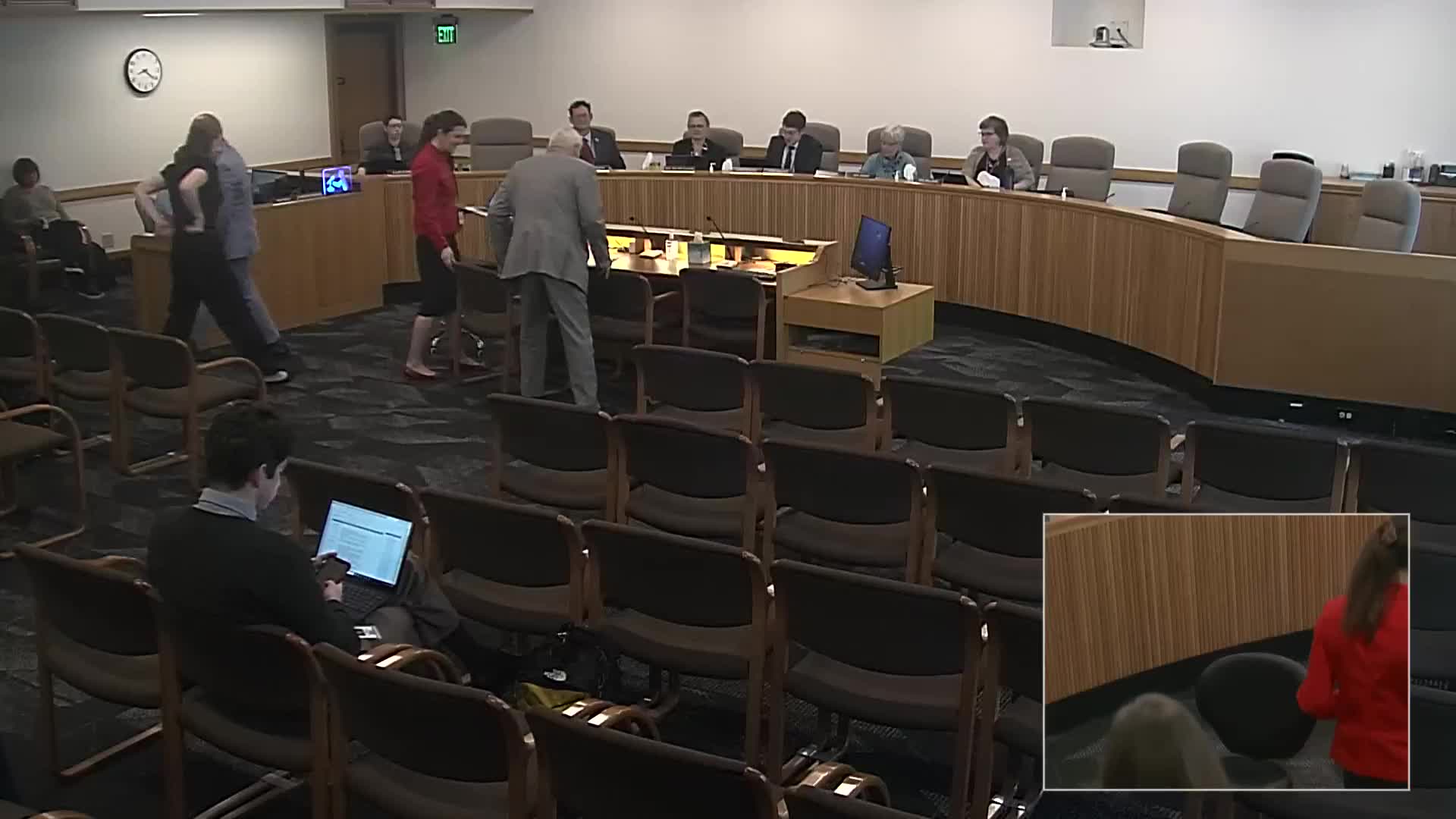Article not found
This article is no longer available. But don't worry—we've gathered other articles that discuss the same topic.

Senate committee hears HB 3218 to study expansion of Tribal Attendance Promising Practices grant program

Senate education committee hears testimony for HB 3694 to allow Oregon colleges to pay student-athletes for NIL

Alyssa’s Law (HB 3083A) moves forward in hearing as sponsors and victims’ advocates press for wearable panic-button systems in schools

